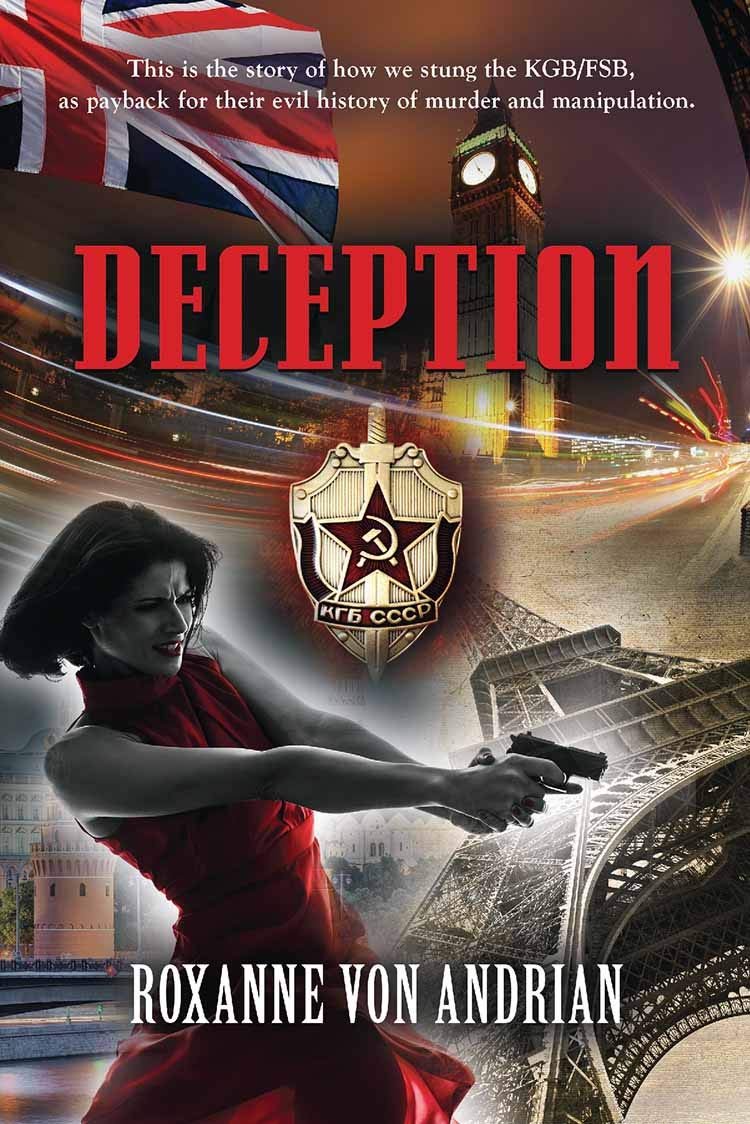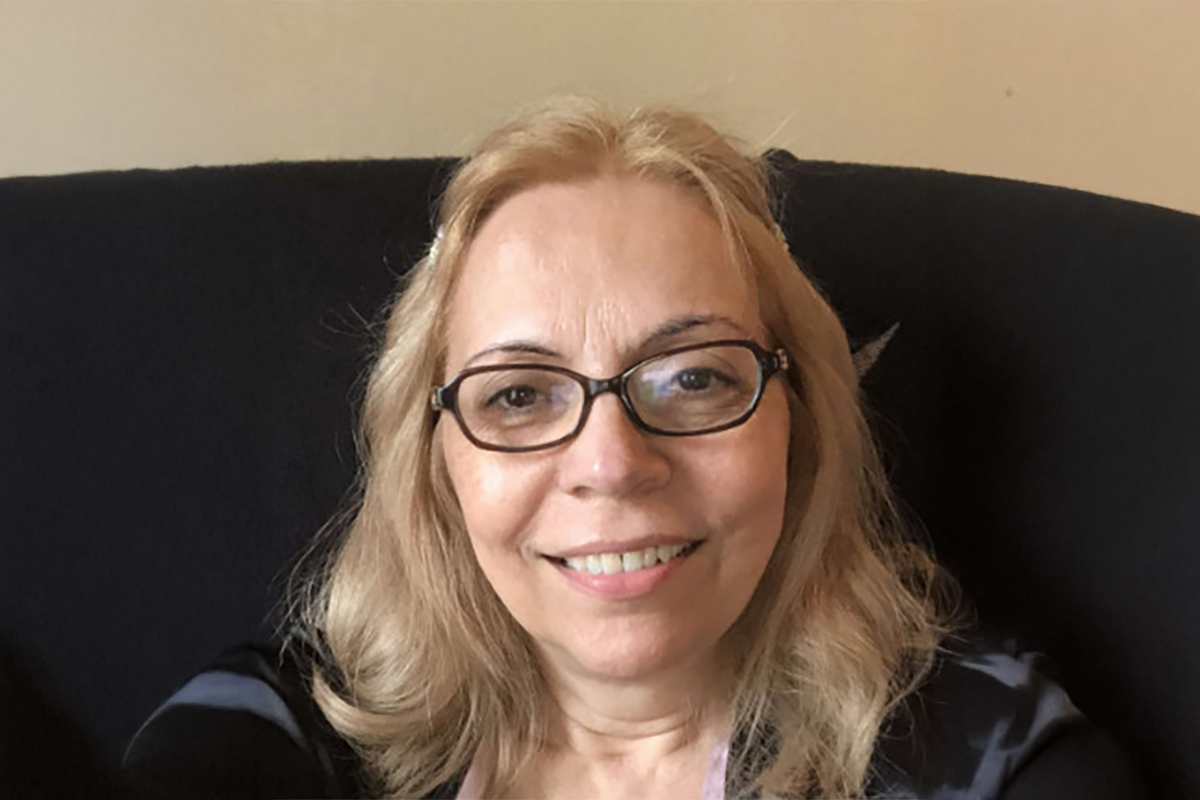PHOTO: Dr. Roxanne von Andrian, author of the political thriller Deception, whose life spans revolution, exile, and the pursuit of truth through literature.
A Life Of Revolution Transformed Into Thrilling Storytelling
Dr. Roxanne von Andrian reflects on her remarkable journey from Romania’s Revolution to international exile, blending lived history, engineering precision and human resilience into her thriller Deception, where espionage and truth intertwine.
Dr. Roxanne von Andrian’s life reads like history lived at its sharpest edge. Born in Romania and caught in the storm of the 1989 Revolution, she stood at the heart of a movement that toppled dictatorship and ushered in a fragile democracy. Those years of upheaval, shadowed by danger and loss, left indelible marks—not only on her personal story but on the imaginative landscapes she would later shape as a novelist.
Her thriller Deception pulses with the urgency of lived experience. Drawing on whispered conversations, clandestine meetings, and the ever-present weight of geopolitics, she weaves fiction from the threads of reality. The novel moves across borders—from Bucharest to Monaco, London to Crimea—with the same restless energy that defined her own years of displacement and exile.
An engineer by training, with patents and a distinguished career in aerospace and defence, Von Andrian brings to her writing a precision rare in the genre. Weapons, espionage, sabotage—these are rendered not merely as devices of suspense, but as echoes of technical mastery, of stories told in her family’s circles, and of a world where survival often depended on knowledge.
Yet alongside the shadows, there is humanity. In Deception, as in life, romance and personal ties coexist with peril. Von Andrian reminds us that even in times of betrayal and fear, people love, dream, and hope. Her fiction is not only an account of espionage and power, but also a testament to resilience, memory, and the unbreakable threads of human connection.
Dr. Roxanne von Andrian masterfully merges real history with thrilling fiction, showcasing intelligence, courage, and remarkable storytelling shaped by lived experience and technical brilliance.
Your thriller Deception spans Bucharest, Monaco, London and more — how did your own experience during Romania’s 1989 Revolution shape the novel’s atmosphere and story arcs?
The novel is closely inspired from real-life events. I was working for the George Soros Open Society foundation of Bucharest, Romania, I was one of the only three Project Coordinators. The characters and their interactions are the result of combining real-life personalities who I worked with, or knew well. The main story, the plutonium theft from Crimea’s Russian Naval base, was the topic of several discussions in small circles where my dad, my uncle, my mom, friends of ours where speculating, since the early eighties, on possible operational targets, with the intent of revealing the criminal, abominable history of Russian influence on the Eastern European countries. (In late nineties, when I started writing my story, the US news was blasting with the newly-found Russian friendship, and the poetic Russian soul – I felt my story would break this bubble of innocence and naivety towards what really happened before the 1989 Revolution.)
“The novel is closely inspired from real-life events.” – Dr. Roxanne von Andrian
Ingrid, your CIA protagonist, engineers a daring plutonium theft — what inspired you to blend high stakes espionage with a nuanced female lead in this context?
At my work at the Soros Foundation, from 1989 to 1992, I met many operatives and agents from US and France, who were either deployed in Bucharest, at their embassies or elsewhere, or were traveling on purpose to meet with Mr. Soros and his team. I met, while working there, an extraordinary variety of people walking in to know us, to talk to us, or interested in our grants, from high rank nomenclature of the Communist Regime, to spies and agents from many countries.
I portrayed in this novel the woman that I never was – the Communist regime wanted to recruit me since I was very young, to work for them. My dad, my uncle served the Communist regime by completing certain projects aside from their jobs, or in conjunction with their current jobs – my dad was Chief Engineer for a research and design government company for pressure vessels (tanks, armament, nuclear civil facilities), my uncle Tudor was one of the Ceausescu’s Cardiologists, and in charge to clear all flight personnel before any Ceausescu’s flights, he was working at the Central Military Hospital of Bucharest. My mom encouraged me to leave my job at the engineering research institute and take this job at the Soros Fund – she thought I could make a contribution.
My dad was against my recruitment by the Communist Regime; my uncle Tudor was all for it, and he lobbied for it until I left Romania in 1992, with husband and kids. My uncle was assassinated by the Communist regime in 1993. I suspect my dad was also assassinated in 2007, because his death was too sudden and the cause of death was ambiguous.
The Miklos Fund operation within Deception touches on post communist civil society — how did your family’s Eastern European heritage inform the moral complexities in that subplot?
Ukraine, Russia, and their common assets that they shared (for example the Crimea peninsula, and other assets located in Ukraine) were a very obvious talking point of future possible contention, for all agencies of the Eastern European countries. Operations conducted in neighboring countries, like Poland, Bulgaria, Ukraine, Eastern Germany, were discussed at my mom’s dinner table with family and friends – my mom was entertaining friends and family on weekends. My uncle Tudor, accompanied by friends and colleagues, were coming to see us every evening, just for tea and biscuits, to talk about the news, ops that he heard of, missions, future moves of Ceausescu and his regime. I was there at all times, I was never told to go to my room, even for the most egregious or “bloody” conversations.
Given your background in engineering, patents and aerospace, how did technical precision influence the procedural details of weapons, sabotage or spycraft in your narrative?
Spycraft detailed knowledge came from my family and friends, since I was 9 years old when my uncle Tudor asked to see his niece at the dinner table with everyone else. I personally met the men or women who led operations in the Middle East in Arab countries or in Northern Africa, or “friendly” missions in Bulgaria, Siria, Eastern Germany. They were all at my mom’s dinners, more than once. We vacationed together at the Black Sea, camping at Navodari or Mamaia, where we could talk freely without being bugged or listened to. I met two women in my family circle of friends, who ran ops in Arab countries to extract Romanian women from abusive marriages.
I learned engineering in college, I always liked machines, mathematics, and physics, I was having good grades in school – studying engineering may have come from my mom and dad too, as they both were engineers.
Deception reads like a hybrid of James Bond and true history — what was your process for balancing real events with dramatic licence?
Everything in this novel is either real fact, or was actually discussed as a possible mission. The only balancing act was to refrain from too many tangential or unrelated events, because memories were coming to me like a river.
You lived in Paris after seeking asylum; how did your life in France impact the novel’s European settings and multicultural cast of characters?
My living in France helped me visualize places that I was told about, either in school (I studied French language and literature for 7 seven years) or in my family and friends’ interactions.
Romance subtly threads through your thriller — how did you approach weaving a love or personal connection into a high adrenaline political?
Romance is part of life – I simply wrote about relationships that I noticed during my work at the Soros Foundation, or outside work. I intertwined those love stories with the lives of the main characters, to make them more realistic. Details of these relationships were things I remembered from friends I made at the Soros Foundation – we were working long hours, the 3 of us, Anca, Cristina, and me, sometimes late into the night. We were afraid many times for our lives. We talked when taking breaks from work about our personal lives, about family, friends, love, children – long emotional talks. I still remember how we were then, young, frail, brave.
EDITOR’S CHOICE
A masterfully crafted espionage thriller—tense, intelligent, and gripping. Roxanne von Andrian delivers intrigue, history, and suspense with flawless execution.



